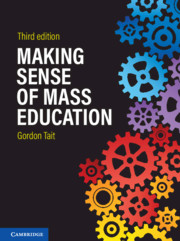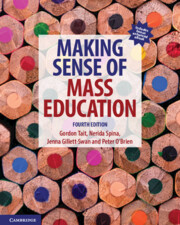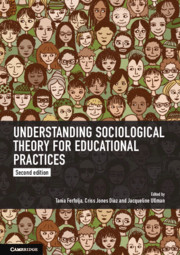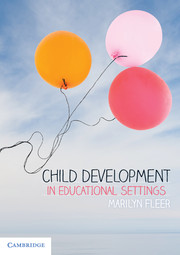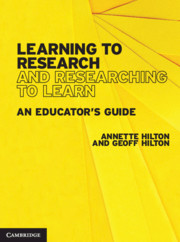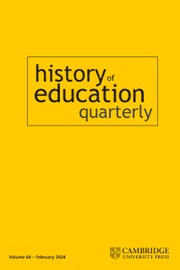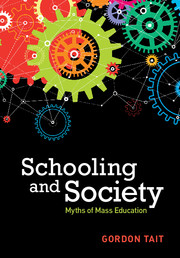Making Sense of Mass Education
Making Sense of Mass Education provides an engaging and accessible analysis of traditional issues associated with mass education. The book challenges preconceptions about social class, gender and ethnicity discrimination; highlights the interplay between technology, media, popular culture and schooling; and inspects the relevance of ethics and philosophy in the modern classroom. The third edition has been comprehensively updated to include the latest research, statistics and legal policies. Each chapter challenges and breaks down common myths surrounding each topic, encouraging pre-service teachers to think critically and reflect on their own beliefs. The inclusion of a new chapter on alternative education reflects the ever-changing Australian educational landscape. In Making Sense of Mass Education, Gordon Tait expertly blurs disciplinary boundaries, drawing on sociology, cultural studies, history, philosophy, ethics and jurisprudence to provide a comprehensive understanding of the fundamental concepts of mass education.
- Updated to include the latest research, statistics and legal policies
- Features a new chapter on alternative education, reflecting the changing landscape of Australian education
- Includes access to a large collection of additional questions, activities and relevant web and video links
Product details
January 2019Adobe eBook Reader
9781108751155
0 pages
6 b/w illus. 1 table
This ISBN is for an eBook version which is distributed on our behalf by a third party.
Table of Contents
- Part I. Re-assessing the Three Pillars: Modern and Postmodern Sociologies of Education:
- 1. Social class
- 2. Gender
- 3. Race/ethnicity
- Part II. The Foundations of an Alternative Approach: Education and Governance:
- 4. Governance
- 5. Subjectivity
- 6. Pre-adulthood
- 7. Big data
- Part III. Cultural Contexts of Contemporary Education:
- 8. The media
- 9. Popular culture
- 10. Technology
- 11. Globalisation
- Part IV. Philosophy and Mass Education:
- 12. Philosophy
- 13. Ethics and the law
- 14. Truth and postcolonialism
- 15. Alternative education.

